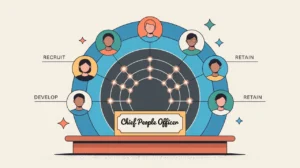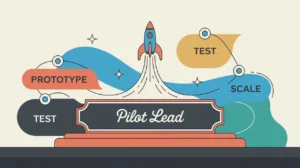What Does the Data Privacy Specialist Role Involve?
A data privacy specialist is responsible for ensuring that the organization’s data practices comply with privacy regulations, protect stakeholder rights, and align with ethical standards. This involves developing and implementing privacy policies, monitoring compliance, conducting risk assessments, advising teams on data protection requirements, and responding to privacy incidents or inquiries. The role typically sits within data governance, legal and compliance, or information security functions depending on the organization’s structure. In both nonprofits and social enterprises, data privacy specialists safeguard sensitive information and help maintain trust with beneficiaries, donors, partners, and regulators.
At What Level does this Role Operate?
Mid Level: This role typically reports to a data ethics lead, director of data and insights, legal and compliance manager, or information security lead. It involves specialized expertise, cross-departmental coordination, and advisory responsibilities to ensure that privacy standards are embedded in organizational systems and practices.
Relative Employability: Data privacy specialist roles are increasingly in demand across nonprofits, social enterprises, research institutions, philanthropic organizations, and the private sector as data protection regulations expand globally. Skilled privacy professionals are sought after to help organizations navigate complex legal landscapes while maintaining operational effectiveness.
Relative Pay Scale: Within nonprofits and social enterprises, data privacy specialist roles sit in the mid to upper mid pay bands, reflecting their specialized knowledge and growing strategic importance.
What are the Key Responsibilities and Activities?
- Develop and implement organizational data privacy policies and procedures in line with relevant regulations and ethical standards
- Advise teams on privacy requirements related to data collection, storage, sharing, and use
- Conduct privacy impact assessments and risk analyses for projects, programs, and technologies
- Monitor compliance with data protection laws and internal policies, and recommend corrective actions where needed
- Respond to data subject access requests, privacy inquiries, and incidents in a timely and compliant manner
- Collaborate with legal, IT, program, and data teams to address privacy concerns and embed protections into workflows
- Stay current on evolving privacy regulations and best practices to keep organizational policies up to date
- Support training and awareness initiatives to build a culture of data privacy across the organization
What Core Competencies and Qualifications are Needed?
Required Qualifications and Experience
The following reflect common qualifications and experience expected for this role, while recognizing that pathways may vary by context, organization, and region.
- Relevant academic background in law, data governance, information security, public policy, or a related field, or equivalent professional experience
- Demonstrated understanding of data protection regulations (such as GDPR, CCPA, or regional equivalents) and ethical data practices
- Experience developing privacy policies and advising on compliance in organizational settings
- Familiarity with risk assessment, incident response, and data governance frameworks
- Strong communication skills to advise both technical and non-technical stakeholders
Key Competencies
- Regulatory and legal knowledge related to data privacy
- Analytical and risk assessment skills
- Communication and advisory capabilities
- Policy development and implementation expertise
- Collaboration across legal, IT, and operational teams
- Integrity and judgment in handling sensitive information
How are AI and Automation Shaping this Role?
An AI-native data privacy specialist will look to AI and automation to monitor compliance, identify risks, and strengthen data protection practices. They can use AI tools to flag potential breaches, track data flows, and support consent and access management. Automation can streamline regulatory reporting, incident tracking, and privacy audits, allowing the specialist to focus on policy refinement, strategic advisory work, and emerging regulatory challenges. By integrating AI thoughtfully, data privacy specialists can make privacy governance more proactive, precise, and efficient.
What Career Pathways and Transferable Skills are Associated with this Role?
Data privacy specialist roles can lead to positions such as data ethics lead, director of compliance and risk, chief data officer, or legal advisory leadership. The skills developed in regulatory compliance, risk assessment, and ethical governance are highly transferable across nonprofits, social enterprises, research institutions, philanthropic organizations, corporations, and public agencies. As data privacy becomes a central organizational priority, professionals in this role are well positioned to grow into senior strategic and governance positions.







